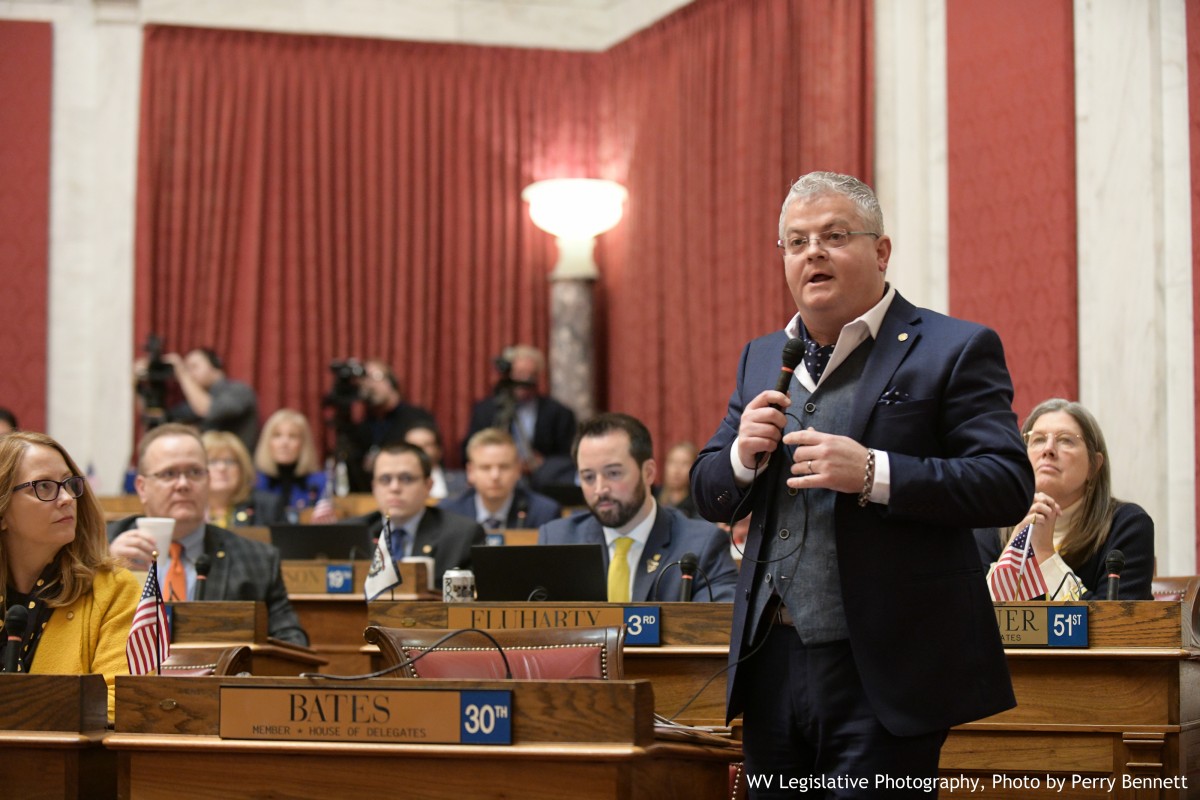CHARLESTON — The House of Delegates approved on Thursday a bill to end the lifetime ban on SNAP benefits for drug felons – a ban that murderers and rapists are not subject to.

The House put off for a day a vote on the Broadband Expansion Act, as Delegate Barbara Evans Fleischauer works with leaders on an amendment to the new tower tax break provision.
And Delegate Mick Bates livened up the floor session with a speech promoting a regulated state cannabis program.
The SNAP bill – Supplemental Nutritional Assistance Program, formerly food stamps – is HB 2459. As Judiciary Committee members learned last

week, during the mid-1990s, during congressional welfare reform and drug war legislation, a provision slipped in banning all drug felons from receiving SNAP benefits for life.
But federal code allows states to opt out. So far, 47 states have modified or eliminated their bans; West Virginia, South Carolina and Mississippi are the three holdouts.
During committee debate, lead sponsor and Judiciary chair John Shott, R-Mercer, said the bill is about the federal law’s fundamental unfairness, singling out one offense for extra punishment. “We ought to be offended that this continues in West Virginia. … We should be anxious to see these people get back on their feet.”
The bill requires the potential SNAP beneficiaries to “domicile” in West Virginia. Responding to a question from Delegate Isaac Sponaugle, D-Pendleton, about what that word means, Shott said the person has to live here and have a valid permanent address, not a post office box.
The bill passed 98-0 and goes to the Senate.
Broadband bill
HB 2005, the Broadband Expansion Act, was on third reading with amendments pending, but members agreed to delay action for a day. Majority Leader Amy Summers, R-Taylor, and Delegate Barbara Evans Fleischauer, D-Monongalia, said they are working to perfect her proposed amendment regarding a five-year tax break to encourage construction of new cell towers.
The bill proposes to tax them at salvage value, which is 5 percent of the original cost. Fleischauer expressed concern in Judiciary that this is unconstitutional because it taxes certain towers at a different rate from others.
Her amendment as drafted proposes to give them a temporary 80 percent credit but they are still working the numbers and some other issues, Fleischauer said.
The House also unanimously passed HB 2422, amending Celebrate Freedom Week legislation passed in 2017.
Under current law, in public and private schools, the week of Sept. 11 is to be called Celebrate Freedom Week. Three hours of instruction are devoted to the intent, meaning and importance of the Declaration of Independence, the Constitution and Bill of Rights.
HB 2422 allows schools to choose the dates for Celebrate Freedom and adds the Emancipation Proclamation to the list of documents to be studied.
‘Cannabis can’
Bates took the floor during the closing member remarks portion of the session.
Words make a difference he said: weed, pot, reefer madness. He doesn’t favor recreational marijuana. He does favor regulation, taxation and decriminalization of cannabis. His refrain was “Cannabis can.”
“We have a population problem,” he said. We can’t legislate our way out of it. “We need to import our way out of it. We need to create a place that people want to come to. Cannabis can.
“Cannabis can and does literally grow like a weed on the banks of our rivers and mountainsides,” he said. It could be grown on mountaintop removal sites. The DEA said in 2105 that West Virginia is the fifth highest producing cannabis state in the country, but there’s no tax money coming in for it.
States with effective programs see their overdose rates go down, he said. “Cannabis can help fund treatment for our drug problems,” and treat chronic pain and make an impact on the opioid problem.
“The taxation, regulation and decriminalization of cannabis can make West Virginia great, a great place to live work and raise a family.”
Twitter @dbeardtdp
dbeard@dominionpost.com




